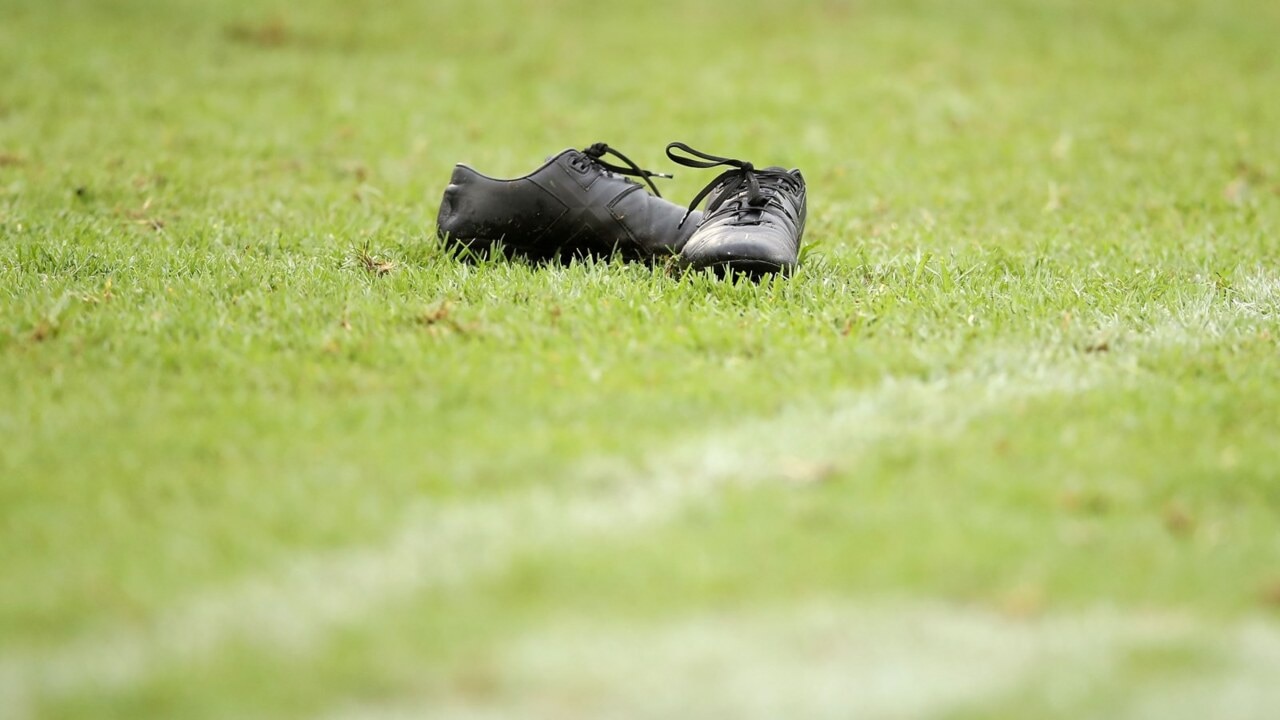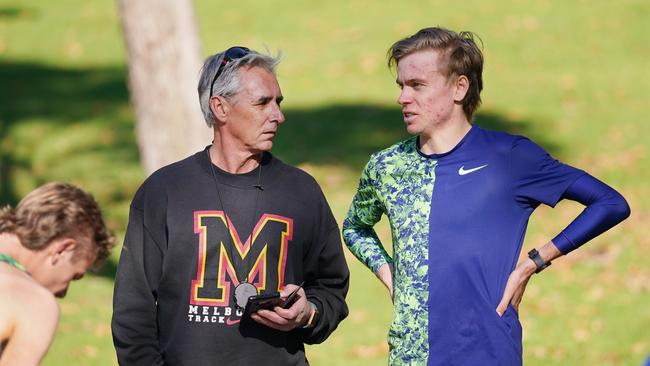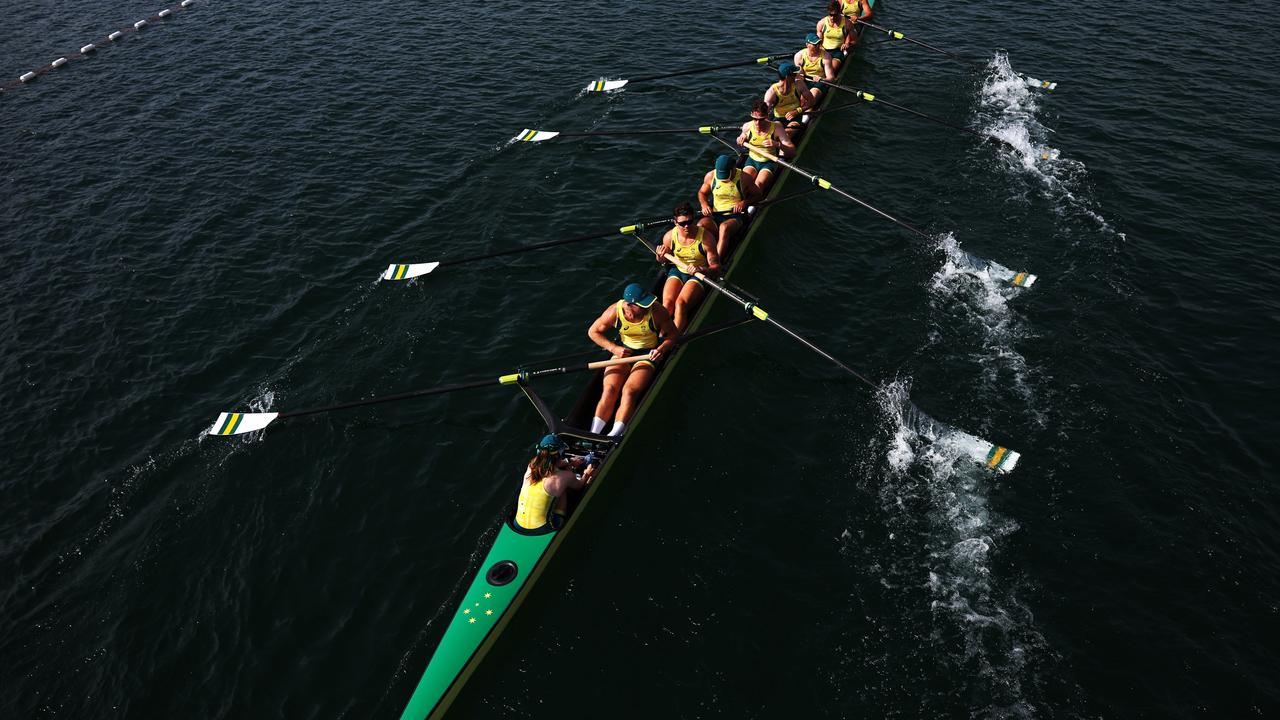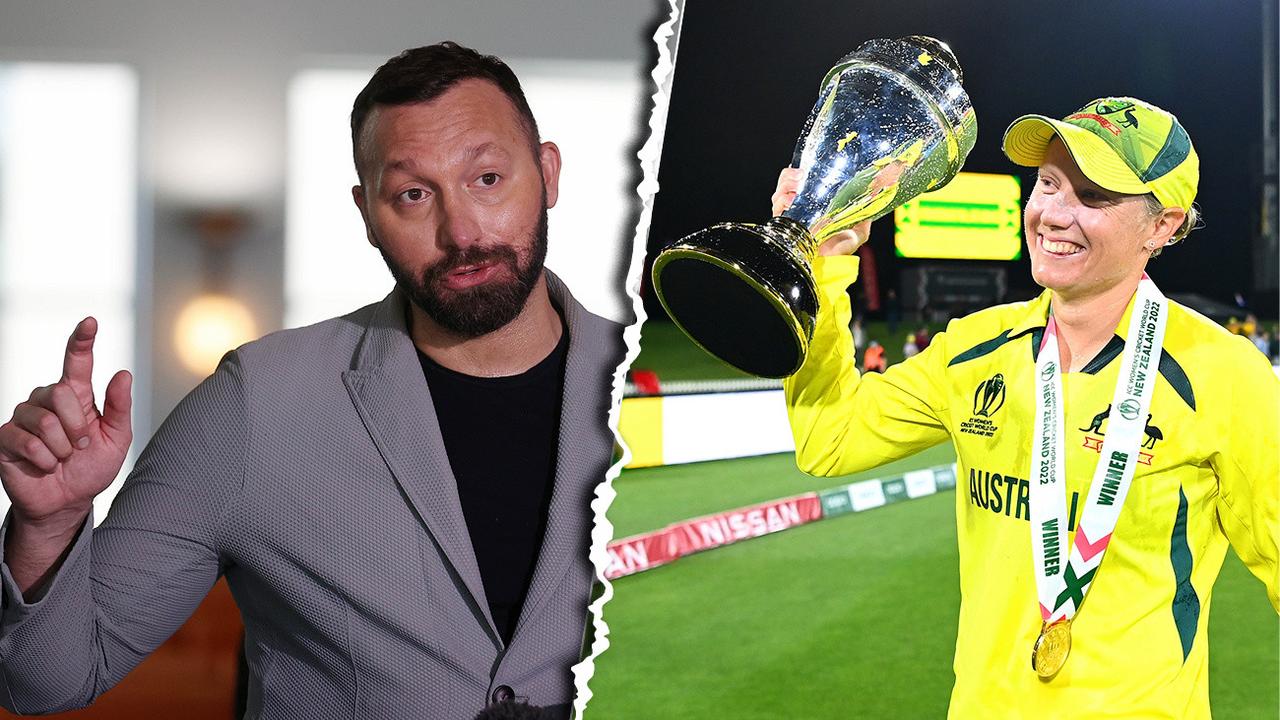World Athletics transgender athlete vote: Leading Australian coach Nic Bideau raises concerns
A leading Australian athletics coach has laid out the major hurdles facing the sport ahead of a seismic vote on whether to allow transgender women into elite-level female competitions.

Olympics
Don't miss out on the headlines from Olympics. Followed categories will be added to My News.
Australia’s leading middle-distance coach Nic Bideau says including transgender women in female competitions at the elite level would be unfair.
The World Athletics Council is voting on a new policy regarding transgender women and athletes with differences of sexual development (DSD), with the sport set to tighten the rules surrounding eligibility.
A decision will be announced on Friday with a number of options being considered including following the lead of swimming and declaring those who are born male cannot compete in female events.
Bideau, who has coached some of Australia‘s greatest athletes including Cathy Freeman, Craig Mottram and Stewart McSweyn, stresses he has no problem with it at recreational level.
“If people want to identify as women and they want to run in recreational events and Masters events, no-one is really bothered, who are they hurting?” he said.
“But I‘d worry about it if there is $50,000 prize money involved or medals, that is just not fair.

“I don‘t know the research and scientific data about it but certainly when you watch some of these races it is clear that some athletes have a massive physical advantage.
“Blind Freddie can see a man usually has an advantage over women in most events, in most sports so how can it be fair?
“If Caitlyn Jenner were to come out and do the women‘s heptathlon after he won the Olympic decathlon, it wouldn’t be really fair would it.”
David Culbert, Olympic long-jumper and track and field expert commentator, said keeping young girls in the sport would potentially become more of an issue if the guidelines weren‘t strong enough.
“It‘s hard enough to keep young girls and teenagers in the sport full stop without making the field completely unlevel for them,” he said.
“You can‘t tell me that in the future there won’t be countries or athletes who say here (changing gender) is an Olympic gold medal. History says if they think there is a shortcut, they will take it.”

World Athletics is looking at using limits on testosterone as one of the determining factors, potentially cutting the levels from 5nmo/litre to 2.5 with athletes having to stay below this level for two years.
This is seen as a measure to buy the sport time, effectively preventing transgender women and DSD athletes from competing at the 2024 Paris Olympics given they would be unlikely to have their testosterone levels down enough by then.
The women‘s 800m final at the Rio 2016 Olympics had three DSD athletes - they have male chromosomes and internal testes but have been raised as girls since birth - on the podium including the winner, South Africa’s Caster Semenya.
As a result World Athletics put restrictions on DSD athletes taking part in races between 400m and one mile unless they reduced their testosterone levels.
A loophole in this policy was exposed at the 2021 Tokyo Olympics when DSD athlete Christine Mboma took silver in the 200m.
The World Athletics Council meeting, which is being held in Monaco, is also voting on whether to change its policy and allow Russian and Belarusian athletes to compete as neutrals.
COACH SLAMS POTENTIALLY ‘SHAMEFUL’ TRANS VOTE
- THE TIMES
A failure by World Athletics to exclude transgender women from female competition when its ruling council votes on its new policy tomorrow (Thursday) would be a “shameful” decision, a former head coach of British Athletics has claimed.
The sport is set to decide whether to cut the maximum testosterone level for transgender women and athletes with differences of sexual development (DSD) from 5nmol/litre to 2.5, or to impose rules such as those adopted by swimming which mean that those born male cannot compete in female events.
Peter Eriksson, the Swede who was the head coach of British Athletics and Athletics Canada, said World Athletics should not permit transgender women or DSD athletes to compete even with reduced testosterone. He would prefer a women’s category and an open category for events in the future.

“Competition should be based on sex not on gender,” Eriksson said. “If you do not have that basic rule then you run the risk of ruining women’s sport.
“Allowing transgender and DSD athletes to compete in women’s events eliminates fair competition because they have all the physical advantages that come with being born male and going through male puberty. World Athletics has got to change its policy and it will be shameful if it does not.”
Athletics has not faced the same issues with elite-level transgender women that swimming and cycling have had to confront, but the sport has long struggled to find an acceptable policy for DSD athletes, who although they have male chromosomes and internal testes have been raised as girls since birth.
The women’s 800m final at the Rio 2016 Olympics had three DSD athletes on the podium including the winner, Caster Semenya. After that, World Athletics put restrictions on DSD athletes taking part in races between 400m and one mile without reducing their testosterone, but at the Tokyo Olympics in 2021 Christine Mboma, a DSD athlete, took silver in the 200m.
World Athletics’ “preferred option” is to cut permitted testosterone levels to 2.5nmol/L, with athletes having to stay below this level for two years. At the least that would buy the sport time as it would effectively prevent transgender women and DSD athletes competing at the Paris 2024 Olympics unless – and this is unlikely – their testosterone levels are already below that.

Lord Coe, the president of World Athletics, has said that “biology trumps identity” and has hinted before that transgender women and DSD athletes should compete with men in an open category but has stressed he wants the sport to be “guided by the science”.
One likely outcome is that the sport’s council cuts the testosterone level to 2.5nmol/L with an agreement to review the policy and vote again in two years’ time on whether to have an open category for transgender women and DSD athletes to compete in.
The council will also vote on whether to change its policy and allow Russian and Belarusian athletes to compete as neutrals, a decision that will have a big impact on the International Olympic Committee’s attempt to let them back in for the Paris Games.
World Athletics is expected to lift its longstanding ban imposed on Russia as part of the state-organised doping scandal, but it will immediately have a second vote on whether to maintain Russia’s total exclusion from competition which was imposed after the invasion of Ukraine. Insiders say the vote is likely to be close.
Originally published by the Times.
More Coverage
Originally published as World Athletics transgender athlete vote: Leading Australian coach Nic Bideau raises concerns





